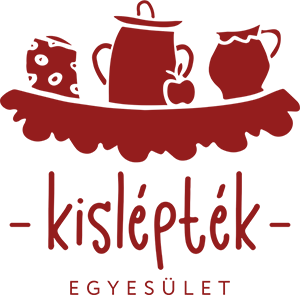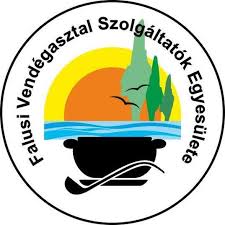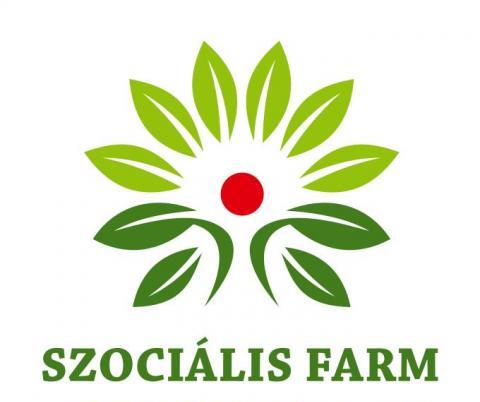
FOSTER
FOSTER is an ambitious Horizon Europe-funded project that will build food system capabilities, knowledge and new governance mechanisms for scientists, citizens and policymakers. FOSTER will gain insight into how knowledge and innovation systems (K&I) can be adapted, made more inclusive, better governed, and equipped to transform Europe’s food system, capable to address the emerging challenges of nourishing Europe in a healthy and sustainable way.
Hello,
We wanted to keep you in the loop about the progress we’ve made in the project. It’s been a busy few months, and we have some fantastic updates to share with you. We hope our new newsletter brings you some interesting insights!
Make sure to follow us on social media for more updates.
Get to know FOSTER better by watching this video!
Our vision at FOSTER is to transform the food system outcomes by building a foundation from which a new knowledge and innovation governance structure can emerge.
To share and explain how we plan to achieve our goals, we’ve created this video -link to the video here about the project and would really appreciate your feedback!
We hope that after watching this, FOSTER feels closer to you. Enjoy watching!
Explore the FOSTER Platform!
Dear Readers, in FOSTER, we aim to build a foundation from which a new Knowledge and Innovation (K&I) governance structure for Europe’s food system can emerge. This new structure is needed because the current K&I system in the European Research Area (ERA) is insufficient to address the emerging challenges of nourishing Europe in a healthy and sustainable way.
Food systems are never stable, they change all the time but need to be resilient enough to provide adequate outcomes. It also requires a constant analysis and accurate information to improve these outcomes.
To provide an opportunity to explore food systems, we have compiled useful information on our Knowledge Platform and invite you to explore this resource.
Through our Knowledge Platform, we aim to make it easier for stakeholders—including farmers, policymakers, researchers, and practitioners—to access relevant information about food systems. We not only seek to share knowledge but also invite feedback from various actors within the food systems. Your input is valuable to us!
To make it easier for you to navigate, we would like to present this mini-guide.
Start exploring by clicking on the items:
| ||||||
| ||||||
| ||||||
| ||||||
|
We hope you enjoyed exploring food systems knowledge with FOSTER!
Summer School 2025 is coming!
Annual Foster co-learning in Summer Schools aims to build capacities in working within transdisciplinary arenas across sectors based on RRI principles including gender aspects, ethics and open science.
This year, FOSTER will have its third Summer School to introduce and discuss definitions and framings of food system transformation and set the stage for the contributions into the summer school. The Summer School will take place in Sopron (Hungary) in May!

The main objectives of this year´s summer school are:
- To reflect how CDI partners are approaching food system transformation;
- To identify points of alignment between FOSTER and CDIs;
- To explore how CDIs can enhance their processes of transformation with learnings from each other.
We will keep you updated on the learnings and insights of the third FOSTER Summer School!
Knowledge & Innovation policy support options for furthering food system science
FOSTER aims to create a strong path toward sustainable, equitable, and resilient food systems, which is crucial in addressing global challenges such as food security, malnutrition, climate change, and biodiversity loss. Knowledge & Innovation (K&I) play an important role to drive the development, dissemination, and adoption of sustainable practices.
For the past few months, we have been compiling the findings from the project into a deliverable that will provide a great contribution for creating more inclusive and well-governed food systems, ultimately transforming Europe’s food system outcomes in terms of health, enterprise, and the environment.
This deliverable represents significant and extensive work, offering valuable insights into how we will achieve our main goal—transitioning from Agricultural Knowledge & Innovation System (AKIS) to Food-Oriented Knowledge & Innovation System (FOKIS). It is intended to explore how inclusive governance, policy, and a multi-actor and systemic approaches to knowledge creation can contribute to a shift from AKIS to FOKIS, also empowering societal organisation seeking to change food systems.
This work delves into “ingredients”—specifically, recommendations that should be considered in the policy and governance of FOKIS. These “ingredients” will help create more inclusive and effective knowledge and innovation systems.
We’re thrilled to share this important work with you! Please click the button below to access the deliverable.
 |
Advancing Reflexive Monitoring in Action (RMA) in the FOSTER Project
As part of the FOSTER project, our Reflexive Monitoring in Action (RMA) activities play a key role in strengthening collaboration between our Change Driven Initiatives (CDIs), their academic partners (APs), and external societal actors. Through structured reflection and iterative learning, we have been able to assess barriers, learnings and new opportunities within these partnerships and refine our approaches to transformative action. Moreover, by centering the experiences of our case studies, we gain situated knowledge of how the current food system operates from a bottom-up perspective.
Currently, we are in Phase 3 of the RMA process, where joint meetings bring together partners from all work packages, CDIs, and APs. These discussions aim to translate RMA insights into concrete joint actions – such as workshops on participatory action research, policy engagement, and governance strategies—to support ongoing case studies.
A key outcome of this phase is the development of the Knowledge Catalogue, a resource that consolidates expertise and tools from across the consortium to further collaboration and impact. These efforts ensure that the FOSTER project continues to build meaningful, multi-directional knowledge exchanges to facilitate systemic change.
Project members – who are they?
Tijana Koprivica
(Delta Foundation)
I am a sustainability expert with extensive experience in implementing social, governance, and environmental strategies, practices, and projects within companies and local communities. During my time with the Delta Foundation, I led initiatives aimed at developing rural areas and enhancing agricultural production for small-scale farmers. This experience has given me deep insights into sustainable agriculture and a comprehensive understanding of the challenges faced by all stakeholders in the food system. By working closely with farmers and other key players in the food value chain, I have gained a thorough understanding of their needs and concerns. Currently, my focus is on analyzing and improving food quality to better align with the expectations and demands of the end consumer.
Miquel Banchs-Piqué
(Fraunhofer ISI)
I am a Researcher in the Department Foresight at Fraunhofer ISI. Trained as physicist, I have worked managing research projects and developing new scientific methods. My experience extends from the energy system and space to sustainability and circular economy. I earned my doctorate in Applied Foresight from the University of Portsmouth, worked at the Łukasiewicz Research Network and led the “CO2 Industrial Ecosystems” project. I also contributed to designing “The Nüwa Concept”, a Mars city-state, and founded the local chapter of the Economy for the Common Good in Portsmouth.
Else Giesbers
(Wageningen University & Research )
The way people and organizations collaborate, and how decisions are made, has always intrigued me. I am particularly interested in exploring how diverse perspectives can be meaningfully integrated into decision-making processes. This involves drawing on different forms of knowledge—such as tacit, academic, and embedded knowledge—to ensure a more inclusive approach. This is especially pertinent in the context of food systems, as food is fundamental to everyone’s lives and is deeply connected to inequalities. Outside of my research, I enjoy exploring nature, sewing clothes, and baking cookies—hobbies that allow me to express my creativity and appreciate the process of making something from scratch.
Do you want to share your feedback regarding our work or have ideas?
Please contact us here.
 |
|
This project is funded by the European Union under the Grant Agreement n.º 101059954. Views and opinions expressed are however those of the author(s) only and do not necessarily reflect those of the European Union. Neither the European Union nor the granting authority can be held responsible for them. |
|---|























